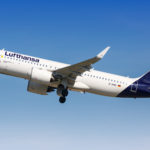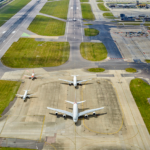Canary Island seaplane operator Surcar Airlines has chosen the ZA600 hydrogen-electric engines from ZeroAvia for its Twin Otter seaplanes.
The airline, which began test flights in 2022, aims to spearhead the electrification of aviation to enable zero-emission flights in the Canary Islands. It will begin operations with conventionally powered aircraft before retrofitting the ZA600 powertrain to its De Havilland Canada DHC-6 amphibious Twin Otter seaplanes.
Gerardo Morales-Hierro, founder and CEO, Surcar Airlines, said, “Millions visit each year to see the incredible natural beauty and world heritage sites here in the Canary Islands. Climate change threatens this and our way of life. Working with ZeroAvia will help us to deliver cleaner flights, while also fostering positive impacts on the local community and the environment.”
Clean flight solutions
According to a survey conducted by the European Investment Bank, three-quarters of Europeans plan to fly less frequently in the future for environmental reasons. Therefore, it is imperative for the aviation industry to implement clean flight solutions, according to ZeroAvia. Hydrogen-electric engines use hydrogen in fuel cells to generate electricity, which is then used to power electric motors to turn the aircraft’s propellers. The only emission is water.
James Peck, chief customer officer, ZeroAvia, said, “The Canaries are a perfect use case for the earliest zero-emission flights, given the opportunity for replacing combustion engines on short island-to-island routes. Developing green options for inter-island travel will help further increase the appeal of one of Europe’s most popular holiday destinations.”
ZeroAvia has completed several successful test flights of its ZA600 engine in the UK, and is on track for certification of the 600kW engine for 9-19 seat aircraft over the next two to three years.
Sustainable news
Read more stories about sustainability here.

